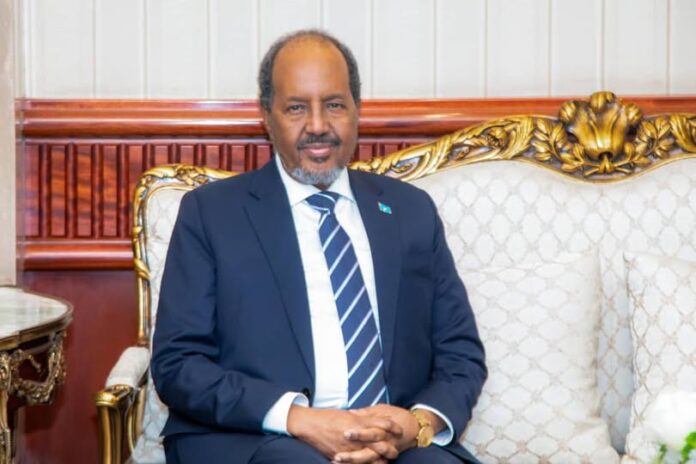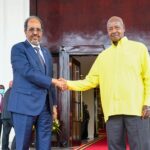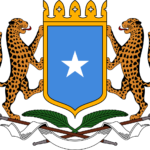KAMPALA, Feb 7 – Somali President Hassan Sheikh Mohamud arrived in Kampala on Thursday for a strategic visit, aimed at strengthening the diplomatic and security bonds between Somalia and Uganda.
The visit marks a significant step in regional diplomacy, as both leaders, Mohamud and Ugandan President Yoweri Museveni, convened for talks that centered on deepening bilateral cooperation, particularly in the realm of counterterrorism.
The agenda of their discussions included:
Counterterrorism Strategies: Both nations share borders with areas prone to terrorist activities, notably from groups like al-Shabaab. The leaders discussed joint initiatives to disrupt these networks, enhance intelligence sharing, and coordinate military operations.
Security Cooperation: Beyond immediate threats, the talks covered broader security issues, including the stabilization of Somalia, support for the Somali National Army (SNA), and the role of the African Union Transition Mission in Somalia (ATMIS). Uganda has been a leading contributor to peacekeeping forces in Somalia.
Bilateral Relations: The meeting also served to reaffirm commitment to economic, social, and political ties. They explored opportunities for trade, investment, and cultural exchanges as means to foster long-term stability and prosperity in the region.
The specifics of this high-level engagement were communicated by Somalia’s presidential spokesperson, Abdirahman Adam Ali (Xadaana), via the Somali National News Agency (SONNA). He highlighted the productive nature of the talks and the shared resolve to address common threats.
President Mohamud’s visit to Kampala is seen as a testament to the evolving partnership between Somalia and Uganda. It comes at a time when East Africa is focusing on collective security measures to combat the persistent threat of terrorism, which has had devastating effects on both countries’ populations and economies.
Analysts suggest that this visit could lead to more formalized agreements or frameworks for cooperation, possibly extending beyond counterterrorism to include broader peace-building efforts in the Horn of Africa. The emphasis on security cooperation also aligns with broader international efforts to stabilize Somalia, where peace and governance remain fragile due to ongoing conflicts.
This diplomatic engagement not only reinforces the security architecture of East Africa but also sends a strong message of unity among African nations against extremism. The outcomes of these discussions are expected to be followed by concrete actions, possibly including joint military exercises, enhanced border security measures, and continued support for peacekeeping operations.
As the situation in Somalia remains volatile, with al-Shabaab still posing a significant threat despite recent losses, cooperation with Uganda, a nation with considerable experience in peacekeeping, could prove crucial in bolstering Somalia’s efforts toward peace and governance.





